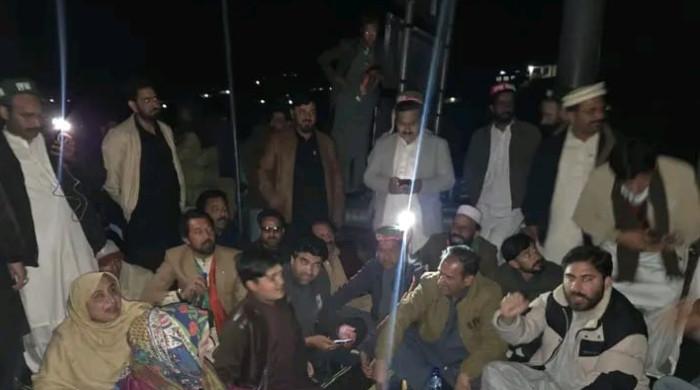From the law book: Standing up against harassment
Laws against harassment are in place but people are not aware of what comes under it
March 09, 2017

KARACHI: Being touched and made inappropriate advances at is so rife a behviour at workplaces that it is seldom considered a case worthy of being reported.
In Pakistan, women, more than men, are forced into such unpleasant situations. Unlike the common belief, even those holding high positions are harassed in some way or the other.
According to relevant surveys, 93% of women are harassed at their workplaces and only 7% of them speak against it and report the case.
Although social pressure bars women from reporting such cases, there is also lack of knowledge on the relevant law which holds women back.
Not everyone is aware of what it entails or how to go about it.
Taking a stand
As per the law, there is a harassment committee at each workplace to tackle such cases when they are reported. If an organisation does not have the committee, the complainant can approach the provincial or federal ombudsman.
Anyone can complain to their respective ombudsman over the committee's decision. The issue would then be taken by provincial governor concerned or president.
Under the law, every organisation is supposed to constitute such a committee and assign a head who will have to listen to the complaints, investigate into the cases and make a decision. The committee should comprise at least three members besides the head, including one woman.
Besides, the relevant policies should be communicated in the languages understood by most of the employees.
Who are the victims?
There is a misconception that such laws are only made for working women. However, its ambit is broad.
"The law also considers men and students," says Mehergarh Director Maliha Hussain. "Complaint can also be made against people at a workplace if they harass visitors because the complainant does not necessarily have to be an employee."
Harassment is an extremely critical issue which should be dealt with separately. This is the reason why separate ombudsman offices have been constituted — instead of taking the issue to penal courts — where specifically harassment cases are heard.
"[However] we want to make this process easy, which is why we have made complaint centres in every district," says Sindh Ombudsman Syed Pir Ali Shah. "As per our awareness campaign, members of the committees of around 120 organisations have been trained." He added the constitution of committees is an ongoing process which will continue so that more people could be benefitted.
Loopholes that persist
Although the law was to be put in practice starting 2010, the relevant offices have not yet been made in Balochistan and Khyber Pakhtunkhwa.
Besides, the ombudsman is not completely empowered as it can neither take suo motto notice nor can it act against any organisation that does not fulfil the requirements.
Moreover, the name of the law — prevention against harassment of women at workplace — suggests it is only meant to help working women.
Therefore, the government is requested to first constitute the relevant offices in Balochistan and KP at the earliest so that people working in the provinces could enjoy the rights people in Sindh and Punjab are.
The ombudsman should also be empowered to take suo motto action so that no one can be suppressed by social pressure.
The writer is the head of gender sensitivity and senior anchor for Geo TV











